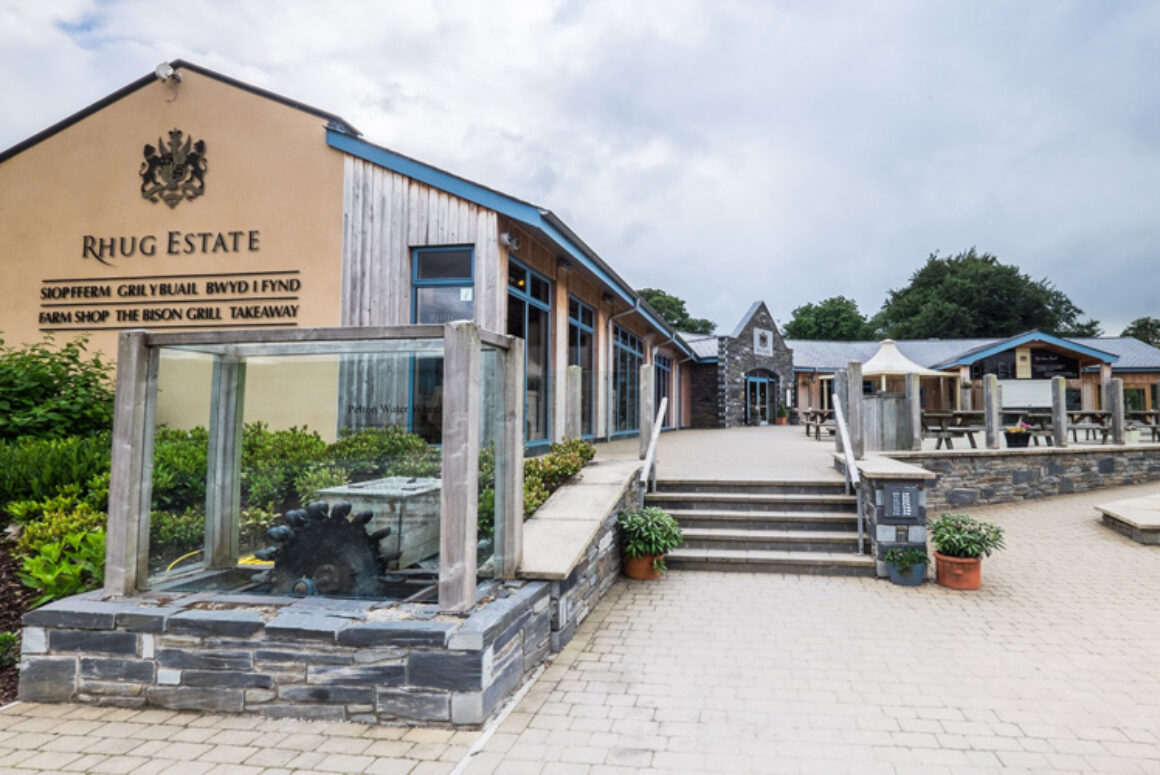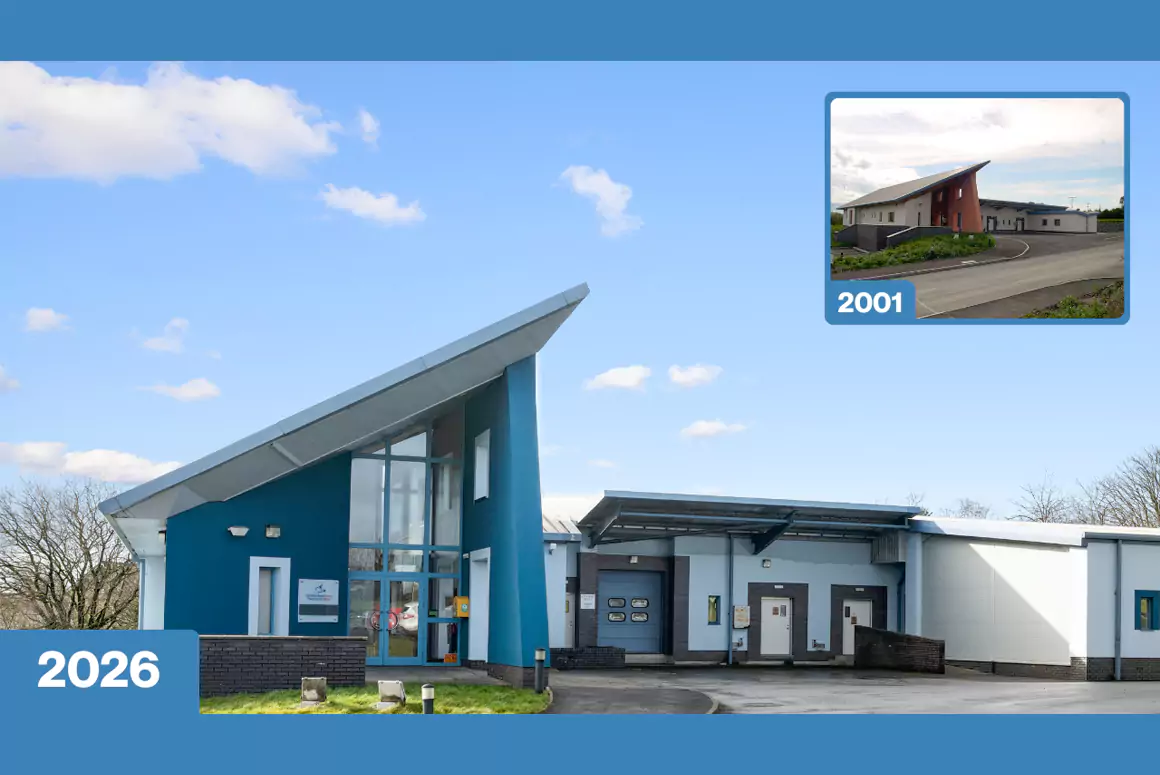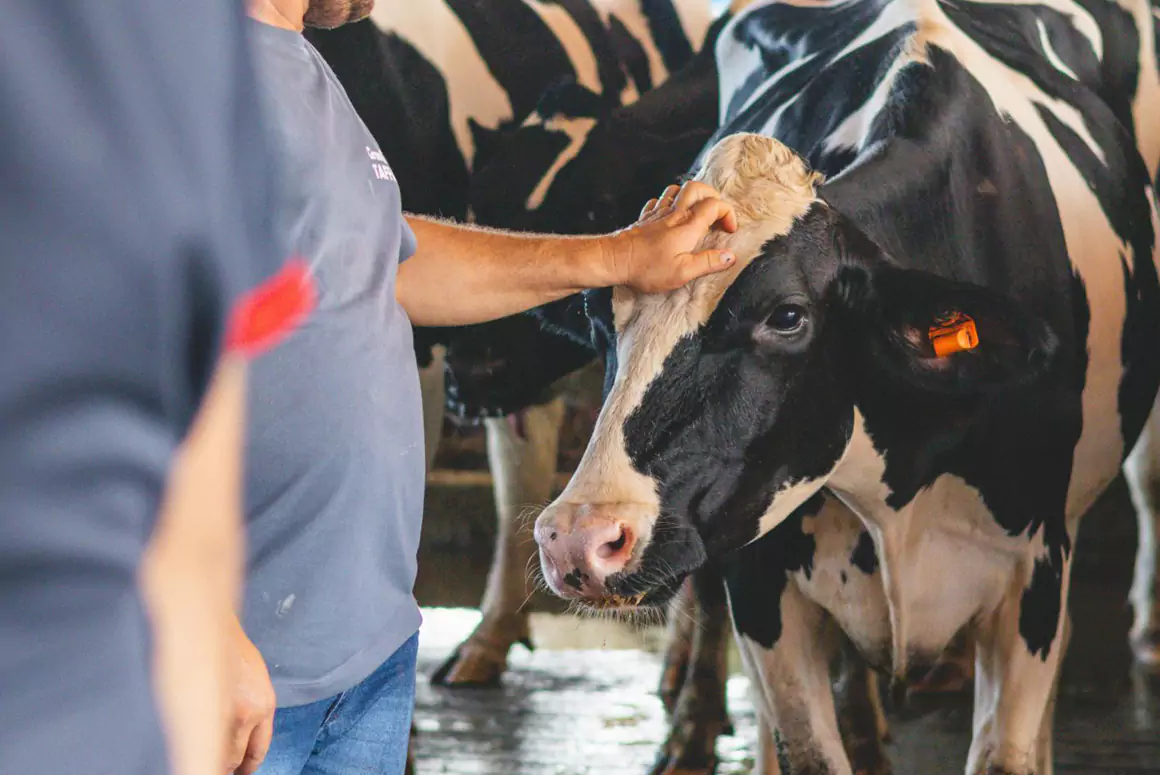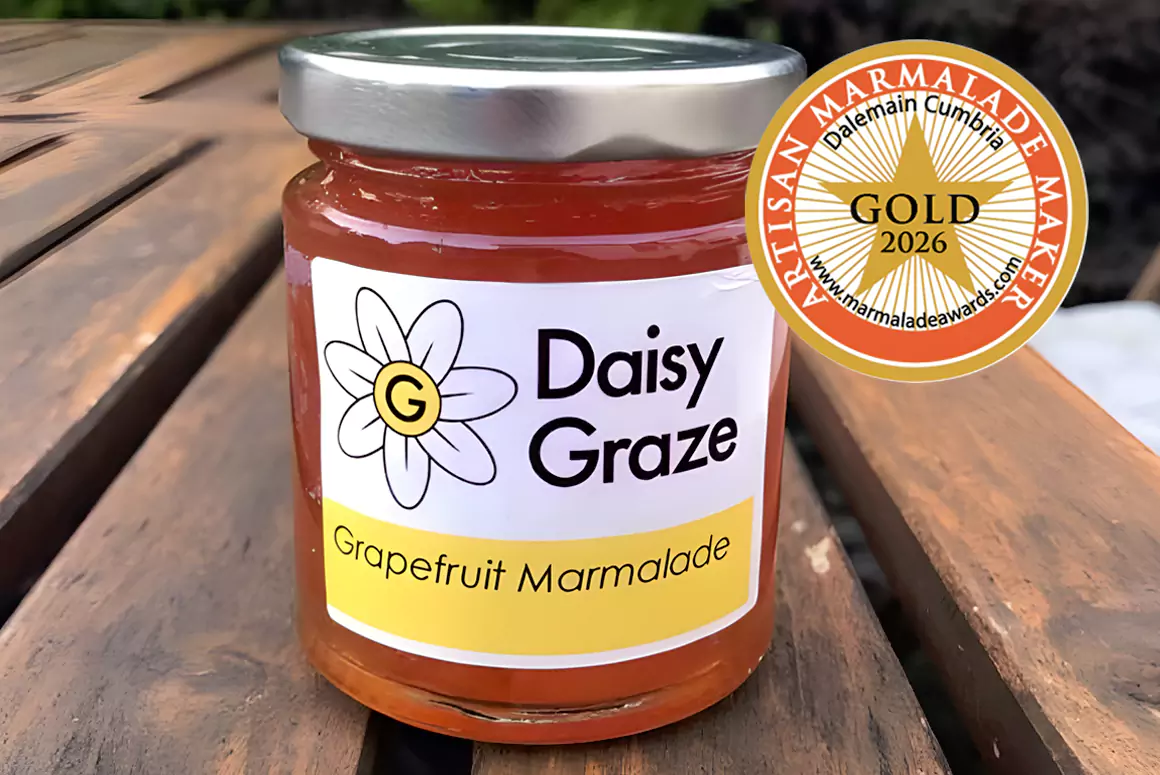One could argue that the rise of the Farm Shop started with the demise of the many smaller livestock and produce markets around 50 years ago.
What started as surplus produce sold from the farm gate at the end of the farm track, has in many instances, but not all, moved on. Now many farm shops have evolved to include areas such as delicatessens, cafes, restaurants, butchery counters, off licences and bakeries, places well worth visiting.
Possibly the first Farm Shop that is also a destination was at the Chatsworth Estate in Derbyshire launching in 1976. However in Wales it was around the year 2000 when Lord Newborough was converting the Rhug Estate to organic status. To ease the financial cost of conversion, he decided a good way to increase revenue for the Estate was to sell burgers. Made from the Rhug Estate’s stock and situated in an Estate car park alongside the A5, this not only increased revenue, but also the message about organic food. In the last 20 years this Farm Shop venture has won many awards but never rests on its laurels as it opened the very first UK Drive Thru Farm Shop and selling a wide range of hot and cold food and drinks, for the family, or for people on the move.
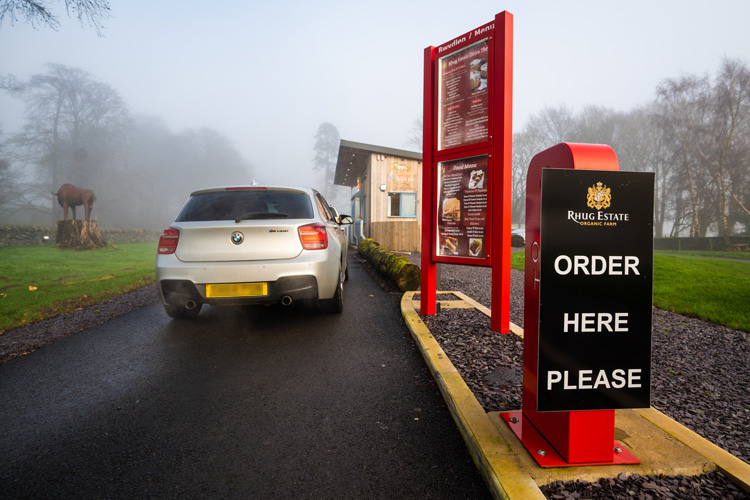
Travelling north from the Rhug Estate on the A494 is the Hawarden Estate. Back in 2008 Hawarden converted and expanded what was a 20 year old ‘Strawberry Shack’ into their Farm Shop. This has grown into what is now a Farm Shop with its café and restaurant, using not only produce from its own Estate, but also selling local produce and creating a true food and drink emporium. Keeping its Pick Your Own business operating alongside the Estate Farm Shop Hawarden have also diversified with many events associated with the Estate from bakery and butchery workshops to their Good Life Camps.
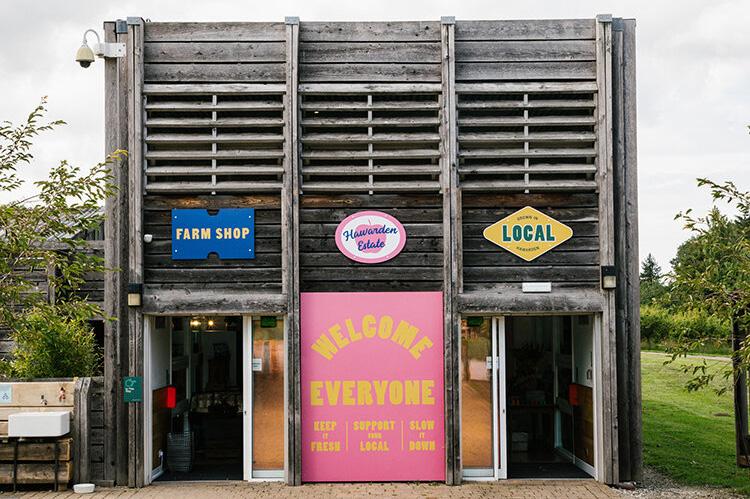
So from established Farm Shops let us take a look at two that have grown in the last few years, firstly, Farmers Food at Home, a maker of the most delicious jams and preserves. At the beginning of the pandemic, immediately the future of food festivals and events disappeared. Like many business owners Anne Marie Harries had to think on her feet, but for her it wasn’t the desire to make money that changed things, it was the desire to help other people. Living in a rural part of Pembrokeshire, supermarkets or even local shops selling groceries were few and far between. Anne Marie decided to help her local community by buying in fruit and veg and selling it from her premises. This act of thoughtful kindness soon developed into a tangential business to her preserve making and with a lot of hard work The Paddock Farm shop was born. Saying it is nothing special is far from a derogatory comment but a compliment, that out of nothing, a Farm Shop was created that now sells so much local produce as well as cake and hot drinks for passing visitors, plus, not forgetting this is a superb showcase and shop for that wonderful range of Farmers Food at Home jams and preserves.
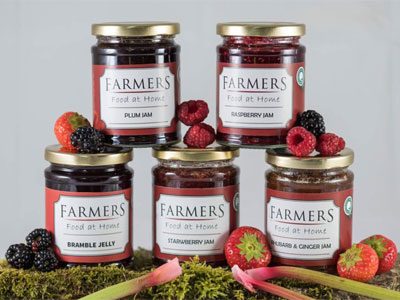
Three years ago and a lot further east just outside Cowbridge, the Penllyn Estate decided that opening a Farm Shop would be a good idea to enhance and grow their farming system. This year Forage Farm Shop and Kitchen entered the Farm Shop and Deli Retailer of the Year Awards and yes, deservedly won the Welsh region award.
The Farm Shop and Deli Retailer of the Year judge’s comments say it so succinctly:
“Well presented application. Excellent sustainability. Good care of staff. Good care of farm land. Like the idea of going to schools to encourage young interest something we should all do more of.”
“A remarkably funky purpose built farm shop on the Penllyn Estate Farm near Cowbridge, which opened in 2020. There are numerous great initiatives such as transitioning to a regenerative farming system, supplying meat to Cowbridge Comprehensive & the head butcher teaching a butchery skills session at the school. Zero-waste policy with the butchery operating a whole carcass model, working with the kitchen to use excess cuts. Left-over produce is donated to Llamau, a local homeless charity. Much of the shop’s produce is supplied by the estate & they’ve looked at their agricultural & retail activities holistically when reviewing their sustainability achievements. An impressive entry, with lots to talk about.”
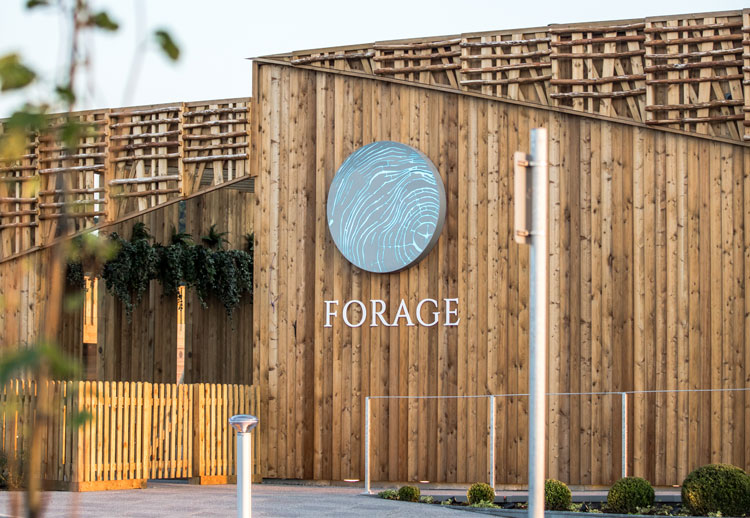
On the main A40 approaching Cowbridge, from the west, there is a new traffic island and one of the exits is a freshly created Forage Farm Shop entrance. As you drive down approaching Forage there is a freshly planted orchard on the left hand side. Well that alone is impressive, but when you realise that the orchard is to be seeded with truffles this shows a business that has long term progressive thinking.
Possibly the largest growth in Farm Shops is in the dairy sector. Milk processing has become a huge multinational business with milk transported many miles. This is clearly seen by the number of milk tankers travelling daily from Wales across the border to England. Dairy farmers have little control on the price, they are paid for their milk and have limited control on the price of inputs, feed, bedding, diesel and electric. So over the last few years there has been in Wales an explosion of dairy farmers selling their own milk. The majority of dairy farmers selling this way have self-service vending machines on the farm and /or sited locally. Some milk is sold raw (unpasteurised) others do have pasteurisers, whilst some have broadened their offering serving milkshakes.
Using returnable glass bottles the initial purchase is expensive, but lessened greatly as the bottle deposit is returned when making subsequent purchases.
No it isn’t cheaper than milk from the supermarket, but it tastes like milk used to taste with the cream on the top of the milk.
When you think that milk can be transported from Anglesey and west Pembrokeshire to say Shropshire, processed, bottled and then shipped back again via distribution depots near Chester or Newport, for it then to be sold in the supermarkets back in Anglesey or west Pembrokeshire. That is hardly green or cost effective, so milk straight from the farm makes so much more sense from so many angles.
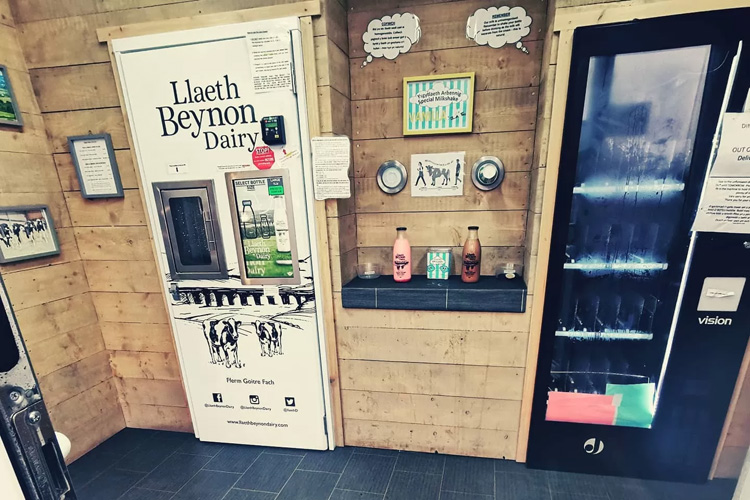
So why are Farm Shops so important to the Welsh food and drink sector and the wider Welsh economy?
Farm Shops, whether they are small or large are individual businesses paying tax in the UK and generally buying goods and services locally or regionally.
Farm Shops shorten the supply chain effectively to zero for produce from the farm/ estate. This makes the products so much more ecologically green in other words, less food miles, which is something we cannot ignore.
For goods not produced on the farm, Farm Shops generally buy, often directly, from local or regional producers.
To explore this aspect in more detail let us look at the case study of the Cribyn Coffee Company. Surprisingly, founded during the pandemic in 2021, owner, Rhys Iley, who had previously spent many years in the Coffee industry before moving back home to Wales, took the bold move and references a local farm shop, as providing some of the inspiration.
“I have always been a huge admirer of Farm Shops and Delis, where local Artisan producers have a real opportunity to sell their products. I was also struck however that in some cases, being ‘local’ doesn’t always mean great quality and that was certainly true with regards to coffee. We invested heavily, renovating and repurposing a 300 year old Coach House to become our Roastery and then buying a state of the art coffee roaster from Germany. It is so important that customers get a consistently good product. In November 2021 we, Cribyn Coffee Company, was the ONLY speciality Coffee Roaster in Wales to be certified by SALSA (Safe And Local Supplier Approval), this was so important to us as it really raises the bar in terms of quality standards. It was only then that we went out to attract Farm Shop Customers.
Local to me was ‘Beacons Farm Shop’ at The Welsh Vension Centre which has a impressive reputation for excellent quality produce and during the pandemic had diversified to provide a home delivery service. I had been a regular customer over the years and had always been impressed with the range of quality products that the Morgan family stock, so would our coffee stack up? Thankfully for us it did and a listing followed in the autumn. I think the owners Elaine and Andrew appreciated the fact that we had really focused on quality and that we sourced our Coffee beans direct from farmers such as Ana and her family farm in Brazil. With our coffee there is a genuine relationship with our farmers and with our customers and that is quite special.
Providing the quality is there at prices that are affordable, the Farm Shop has an increasingly important role to play as consumers increasingly do want to shop locally. With the holiday season upon us there isn’t a better opportunity to show our visitors the best that Wales has to offer”.
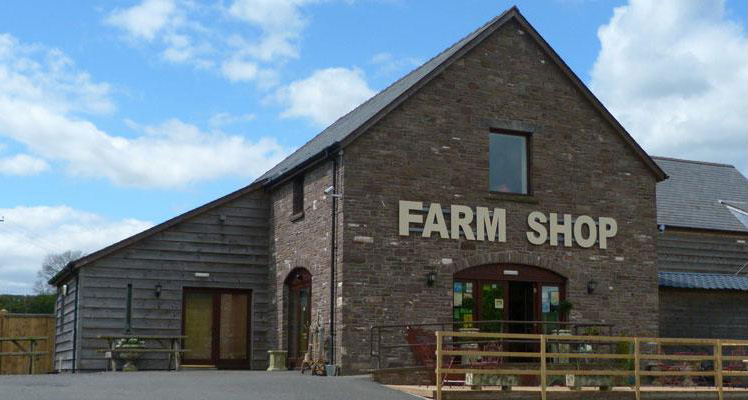
But what benefits does shopping at our local Farm Shop have for us the customer? Yes there are hidden altruistic benefits such as helping profits and therefore taxes in the UK and even within the county. But what are the benefits for us individually?
In so many cases taste and freshness, but also so much more.
Cost of food? Some argue that Farm Shops are more expensive than purchasing the equivalent from the supermarket. So let’s take on that challenge. Taking the same cut of meat, of the same weight, cooked in the same way, comparing the size of the joints at the point of putting on the plate. Most meat sold in farm shops is dry cured and hung for some time (usually a minimum of 21 days). This means that the meat dries, but that is not something you would notice once cooked, the flavour is therefore intensified, but also means when cooked it shrinks much less.
Perhaps you want a mid-week roast but don’t want to spend on sirloin or silverside, do check out your local Farm Shop where it is more than likely that you can buy shin at half the price per kilo than the more expensive cuts. On top of that it is likely that the person in the Farm Shop can tell you how to cook it, if you are unsure, so that when it gets onto your plate, it tastes as delicious as the more expensive cuts and often better.
We could go on but shopping locally in your Farm Shop helps you…
- Make the most of the food that you buy.
- Cut the food miles of the weekly shop.
- Create and make tasty meals.
- Avoid those ultra-processed foods and ingredients such as palm oil and E numbers.
Below we list the contact details of the businesses mentioned in the article plus a random selection of Farm Milk suppliers.
Rhug Estate, Corwen, Denbighshire LL21 0EH
Tel: 01490 413000
Web: www.rhug.co.uk
Email: contact@rhug.co.uk
Hawarden Estate Farm Shop, Flintshire CH5 3FB
Tel: 01244 533442
Web: www.hawardenestate.co.uk
Email: manager@hawardenestate.co.uk
Forage Farm Shop and Kitchen, Penllyn Estate, Llwynhelig, Cowbridge, Vale of Glamorgan CF71 7FF
Tel: 01446 774113
Web: www.foragefarmshop.co.uk
Email: info@foragefarmshop.co.uk
Farmers Food at Home, The Paddock, Llanreithan, Mathry, Pembrokeshire SA62 5LG
Tel: 07960 093 716
Web: www.farmersfoodathome.co.uk
Email: sales@farmersfoodathome.co.uk
Cribyn Coffee Company Limited, Scethrog House, Scethrog, Brecon, Powys LD3 7EQ
Web: www.cribyncoffeecompany.com
Email: rhys@cribyncoffeecompany.com
Beacons Farm Shop, Middlewood Farm, Bwlch, Brecon, Powys LD3 7HQ
Tel: 01874 730929
Web: www.beaconsfarmshop.co.uk
Email: info@beaconsfarmshop.co.uk
Gelli Farm Raw Milk
Facebook: @GelliFarmRawMilk
The Mead Farm
Web: meadfarmfoods.co.uk
Llaeth Beynon Dairy
Web: www.llaethbeynondairy.co.uk
Llaethdy Mynydd Mostyn Dairy
Web: www.mynyddmostyndairy.co.uk
Organig Llaeth
Facebook: @llaethllandynmilk
Vending machine info: llandyn.wales/milk-vending-machine/


